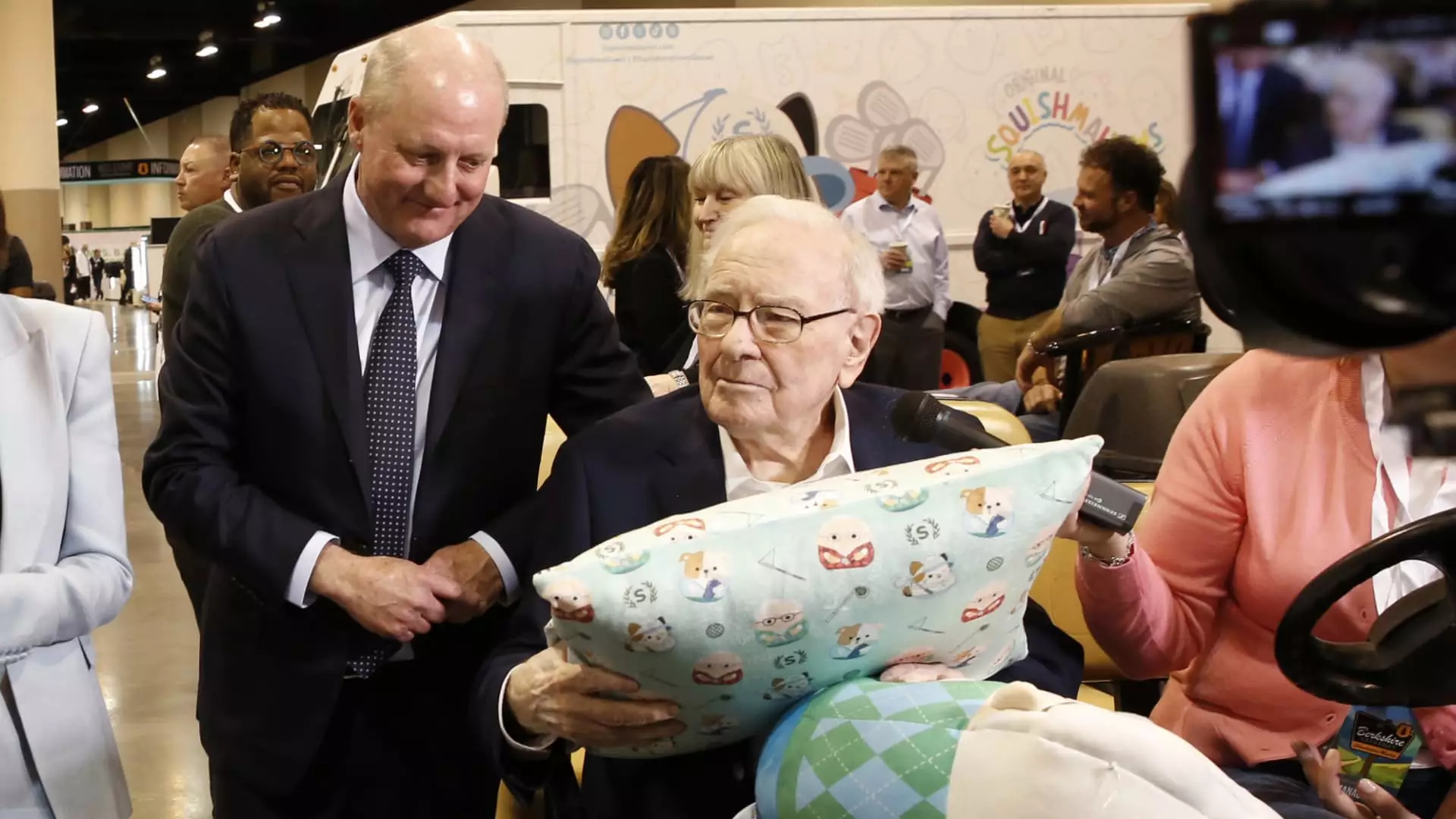On an unexpectedly eventful Monday, retail investors demonstrated their unwavering confidence in Berkshire Hathaway’s future, channeling an astonishing $24.4 million into the company’s Class B stock. This surge marked not just financial inflow but also an emotional affirmation of incoming CEO Greg Abel’s leadership potential. As Warren Buffett prepares to pass the torch at the end of the year, a sense of optimism seems to overshadow the apprehensions that typically accompany a corporate transition.
Amidst a backdrop of declining stock prices—specifically a 5% drop, marking one of the company’s worst showings in years—this influx signals a deeper narrative than mere financial figures. The decision by everyday traders to invest in Berkshire amidst such volatility wreaks of resilience, possibly demonstrating a collective belief that the underlying fundamentals of the company remain robust, even in the face of leadership change.
Buffett’s Legacy: An Emotional Affair
Berkshire Hathaway’s annual shareholder meeting has become a pilgrimage for fans of the “Oracle of Omaha.” The atmosphere is electric, charged with years of investment lore and Buffett’s charisma. Attendees don apparel featuring his visage, eager to capture the essence of the icon who has shaped their financial journeys. Yet, the announcement of his impending retirement cast a long shadow over the festivities, bringing an uncertain future into focus. However, Buffett imparted a crucial piece of wisdom: he endorsed Abel as the suitable leader poised to guide Berkshire into an era defined by innovation and stability.
Though Buffett’s stature is irreplaceable, his decision to step aside is rooted in practicality. By handing over operational reins to Abel, he emphasizes a forward-thinking mentality that aligns with modern business challenges. The pivotal choice to maintain his role as chairman, coupled with a steadfast commitment to remain an equity holder, sends strong signals about the continuity of the company’s core values.
Abel: A Tough Act to Follow
The transition to Greg Abel raises questions about leadership style and decision-making prowess. Critics are quick to point out that Abel has yet to demonstrate comparable stock-picking acumen that made Buffett a legendary figure among investors. Yet, the real contentment for shareholders may lie in the qualities that transcend mere financial metrics. Abel embodies a fresh perspective that could invigorate a company that, despite its colossal size, must remain agile in a rapidly changing economy.
Addressing concerns over Abel’s untested style, Buffett himself sets the tone for optimism, exuding faith in his successor’s abilities. It reflects strategic foresight—not only regarding market positioning but also in adapting to investor psychology, particularly when fear and uncertainty grip the financial landscape.
The Value of Stability: Berkshire’s Safe Haven Potential
With Berkshire Hathaway holding over $330 billion in cash reserves, its capacity to withstand economic turbulence positions it as a beacon of stability in uncertain times. Retail investors appear to be keenly aware of this dynamic, portraying the stock as a safe haven. Their decision to invest robustly—even in a week marked by a downturn—underscores a collective recognition of the security that comes with backing a financially robust conglomerate.
In turbulent economic environments, seasoned investors leverage opportunities while others hesitate. The recent inflows into Berkshire might hint that this community of retail traders is banking on a similar strategy as they prepare for potential downturns. If the past serves as a guide, Buffett has historically made bold investments when the markets trembled, creating room for speculative optimism under his watchful eye.
The Market Reaction: Resilience Amidst Skepticism
While the early reactions to the leadership transition spark conversations about Berkshire’s future, the tangible results—reflected in stock performance—will ultimately determine public perception. The statistics reveal a paradox; shares remain up 13% in 2023, outperforming the S&P 500, which has dipped over 4%. Such numbers invite scrutiny and peak curiosity regarding what Abel’s management will look like. Will he continue the legacy of outperforming an otherwise stagnant market, or is this the beginning of a new trend that takes a divergent path?
Market responses might be fraught with short-term pessimism, yet it is crucial for investors to focus on long-term potential rather than immediate fluctuations. While Abel’s track record may not yet inspire festive chants akin to those reserved for Buffett, the groundwork is in place for him to etch his own narrative within Berkshire’s storied history. The foundation of trust built over decades, alongside a fresh willingness to embrace new approaches, may propel Berkshire into its next chapter with greater vigor than this moment allows us to appreciate.

